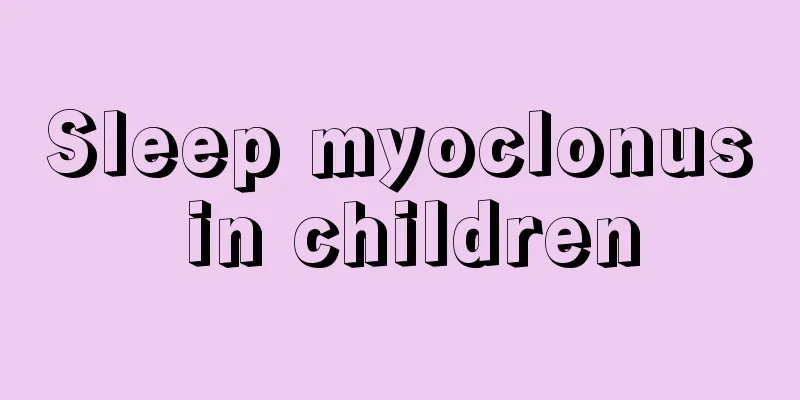What should I do if my child has gastrointestinal disorders?

|
Gastrointestinal dysfunction in children often manifests itself in the form of diarrhea. However, pediatric diarrhea is the most common multiple disease in children. Many children are regarded as the apple of their parents' eyes. Therefore, when parents see their children have diarrhea symptoms, they become very nervous and rush to feed them antibiotics. However, diarrhea can be caused by many reasons. Of course, gastrointestinal dysfunction is an important reason. So what causes diarrhea in children? Physiological diarrhea in infants is more common in children under 8 months old. They appear bloated and often have eczema. They have diarrhea soon after birth and have frequent and watery stools, but good appetite, no vomiting or other symptoms, and their growth and development are not affected. After adding complementary foods, the stool gradually returns to normal. Physiological diarrhea is a normal phenomenon in some children. It is not pathological and does not require medication. Diarrhea caused by gastrointestinal dysfunction mainly occurs in children under 2 years old. The main clinical manifestations are: increased frequency of bowel movements, which are watery or "egg drop soup"-like, more than 10 times a day or more. Mild cases are generally in good condition, while severe cases are often accompanied by fever, vomiting, decreased appetite, and may also cause dehydration, acidosis, and electrolyte imbalance (hypokalemia, hypocalcemia, hypomagnesemia). If the limbs are cold and the pulse is weak or undetectable, it means that dehydration has reached a serious level and shock has occurred, which can be life-threatening. Therefore, the condition should be closely monitored, with special attention paid to the temperature of the limbs and the amount of urine. In addition, if the child is found to be breathing rapidly, it indicates acidosis, which can be life-threatening and the child should be sent to the hospital's pediatric department for treatment immediately. Infectious diarrhea is mainly caused by bacteria and viruses. There are 100-400 types of bacteria in the intestines of a normal person, including beneficial bacteria and harmful bacteria. When the body is healthy, harmful bacteria do not cause disease. Instead, they restrain and coordinate with beneficial bacteria to maintain normal microecological balance. They can also block the invasion of external bacteria, thereby maintaining the health of the body. However, once the environment changes or antibiotics are used for a long time, beneficial bacteria will be suppressed, their numbers will decrease sharply or disappear, harmful bacteria will increase, and intestinal flora will become disordered, leading to persistent diarrhea and secondary fungal enteritis. There is currently no specific medicine for viral infections, and symptomatic treatment is the main approach. If viral enteritis such as rotavirus enteritis is confirmed, antibiotics are not necessary, as the course of the disease is short and it can heal on its own. For those who become ill due to the production of enterotoxins during bacterial diarrhea, antibiotics may not be necessary or may be used less frequently. Antibiotics are needed for those whose stools are mixed with mucus and blood, who have a significant increase in white blood cells in stool microscopy, and who have abdominal pain and tenesmus. Once intestinal flora disorder or secondary fungal enteritis occurs, antibiotics should be discontinued and microecological preparations should be given to support normal intestinal bacteria, restore normal ecological balance, and resist the invasion of foreign pathogens. If combined with fungal enteritis, oral toxin-releasing agents can also be added. So what are the preventive measures? First of all, we need to strengthen food hygiene and water management; Second, we should promote breastfeeding and try to avoid weaning in summer; Third, feeding should be reasonable and the addition of complementary foods should be done gradually; fourth, good hygiene habits should be developed, washing hands before and after meals, and disinfecting food and tableware; fifth, long-term abuse of broad-spectrum antibiotics should be avoided. Long-term use of broad-spectrum antibiotics can lead to intestinal flora disorders, aggravating diarrhea or causing prolonged illness. I hope that the information I mentioned can be useful to all the parents and can give my friends a general understanding of this. When children show the above symptoms, parents must not rush to give them medicine. It is best to go to the hospital to find out the symptoms and then follow the doctor's instructions! |
<<: How far can a two-month-old baby see?
>>: Is meningitis serious in children?
Recommend
Frequent constipation in children
The cause of constipation in adults is related to...
Causes of high hemoglobin in children
If a child has high hemoglobin, it is particularl...
What to do if your child's nose is always blocked
More and more people are suffering from rhinitis,...
What is the cause of newborn baby's skin peeling?
We all know that neonatal skin peeling is a very ...
Farting is painful for newborns
We all know that the digestive system of newborns...
Do babies need to take a bath every day?
In the eyes of many people, they believe that chi...
Can adults drink baby formula?
Many pregnant women will stock up on some things ...
What to do if your child has heart valve defect
Heart valvular disease refers to organic lesions ...
What food should children eat when they have diarrhea? Several foods can improve diarrhea
Children should pay special attention to their di...
What to do if your baby has a runny nose
For younger children, mothers must provide specia...
What should I do if my child has a severe dry cough?
Children due to low physical function. So it is v...
Treatment for severe coughing in babies while sleeping
Nowadays, the incidence of babies coughing badly ...
What's the matter with the blue veins in the corners of the baby's eyes?
Blue veins on the face do not only occur in a cer...
Can children eat eggs after having a fever?
When a child has a fever, many family members wil...
What causes tears in children's eyes?
In life, we often encounter parents who bring the...









